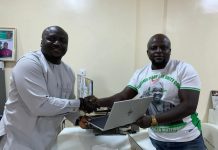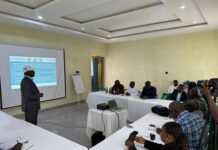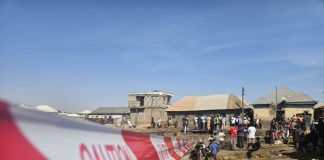Experts have raised new fears about the rise of drug abuse in Plateau State. They say the problem is weakening young people, increasing crime, and hurting communities.
The warning came during a workshop titled “Impact of Drug Abuse on Local Governance.” It was held on Tuesday, September 2nd, 2025, at Crispan Event and Suites, Jos.
The program was organized by the Sound Minds Medical and Rehabilitation Initiative (SOMMRI) in partnership with the Plateau State Ministry for Local Government and Chieftaincy Affairs.
Those who attended included members of the Plateau Youth Council, council secretaries, health directors, religious leaders, and traditional rulers. Discussions focused on how drugs affect youth, governance, and security.

Nurse Ndak Zuhumnan Andarawus, also called Nurse Kizito, gave a presentation on drug use in Nigeria and Plateau. He listed substances like cocaine, tramadol, cannabis, and others that damage the brain and change behavior.
“The link between drug abuse and crime cannot be overemphasized. Many perpetrators of violent crimes confess they could not have carried out such acts without drugs,” he said.
He added that in Jos, “jungles” where drugs are freely used now exist in almost every community. “Hard drugs embolden criminals and armed groups, wiping away their inhibitions and conscience,” he warned.
Clinical Psychologist Mafai Dauboyi spoke on family factors. He said poor parenting, early alcohol use, and lack of supervision increase the risk. Positive role models and strong community values, he explained, help protect young people.

Prof. Nwoga Charles, a Consultant Psychiatrist at the University of Jos, said addiction is more than a health issue. “Companies profit while communities pay the price in productivity, health, and lives lost. We need treatment centers across Plateau State, not just conversations,” he said.
Pharmacist Gyang Samuel Ishaya, Executive Secretary of Jos North LGA, said the main problem facing youths is drugs. “Our problem in Jos North is not about ethnicity or religion—it is drugs. This program helps us build synergy with traditional rulers, NDLEA, and communities to confront the menace,” he explained.
The Speaker of the Plateau Youth Council, Rt. Hon. Aseno Amos, added his voice. “Most of those in rehabilitation centers are youths who should be in schools or at work. Drug abuse is crippling our manpower and fueling crime,” he said.
Religious and traditional leaders also spoke. They called for unity among councils, security agencies, and faith groups to fight the spread of drugs. They urged a revival of youth activities like debates, sports, and cultural events.
At the end, participants agreed on stronger local by-laws, more support for NDLEA, and the creation of rehabilitation centers. Organizers promised that all feedback would guide new policies and government plans.









